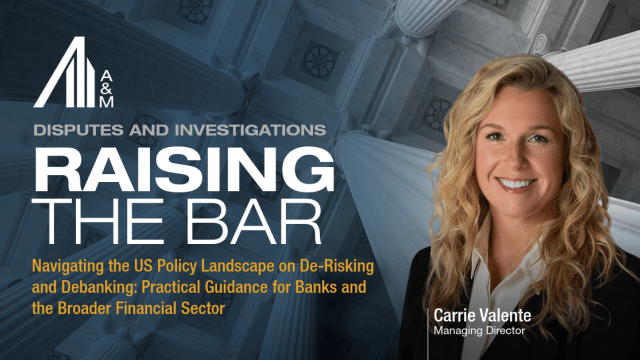Mitigating Conduct Risk in Crisis Situations
There is a Spanish saying that goes “A rio revuelto, beneficio de pescadores”, which loosely means “in difficult times, somebody will take advantage”.
Employees and companies are under more pressure at work than ever before. Lots of otherwise strong businesses will face irreparable damage to their operations and finances as a result of the coronavirus pandemic, perhaps the first event in human history to affect all countries and all industries in some way.
Organisations everywhere are dealing with staff having moved en masse to remote working. Looking ahead, other issues may arise as workforces enter a ‘new normal’ which could see teams, business units or entire organisations switching in and out of remote working modes at little notice.
Seismic shifts like this inevitably impact culture, leadership and the way different parts of companies interact, potentially affecting the way employees conduct themselves and exhibit self-control. As leaders begin to look beyond the crisis itself and toward recovery, the stakes remain extremely high.
Pressures on people
There are several different roles within organisations that will have to deal with especially pressurised decision-making, where doing the wrong thing may become highly tempting. These include:
- C-suite / executive leadership
- Finance and payroll personnel
- Salespeople and marketers
- Procurement and supply chain
- IT, infosec and physical security
Internal and external pressures are being exacerbated because of the uncharted territory in which we all find ourselves. For example, organised crime groups could offer struggling businesses loans at very attractive rates, as a way to gain a foothold within legitimate companies. A CFO eager to boost their own reputation by finding funding to pull off a ‘rescue’ deal (or simply cooking the books) could create a very serious problem for themselves and their employer.
Added stress on personal lives, professional positions and finances could cause otherwise trustworthy employees to act illicitly or illegally. For senior executives, a misguided sense of altruism may be a motivating factor. Breaking the rules in order to “save the business” or “protect my employees” might appear to be a rational course of action to someone working in a crisis scenario, even if in the cold light of day the potential to cause long-term harm is clear.
Functions at high risk
In such an uncertain environment, it is unwise to assume that any part of an organisation will be free of risk. However, we see a few roles and departments as potential hotbeds for unethical or illegal behaviour.
Sales and marketing
Organisations are under intense pressure to present reassuring updates to markets and shareholders, outlining how sales and revenues will recover. This has a knock-on effect for salespeople and marketers who may be tempted to overstate incoming revenues and flatter the top line. As business begins to improve, sales and marketing leaders may want to disguise a traumatic last few months. Even in a new normal, revenue and earnings must still be assessed as strictly and rigorously as possible.
Finance
COVID-19 poses new challenges for external financial service providers and internal stakeholders alike.
Corporate transactions and government aid represent lifelines for organisations. Globally, an estimated $5 to $10 trillion is available in support packages to people and businesses. This represents an unprecedentedly large opportunity for unscrupulous actors to unlawfully benefit from governments’ generosity. The risk of bribery and corruption, as well as bid rigging, collusion and price manipulation on contracts, has increased significantly.
Some organisations will be looking to capitalise on a unique chance to grow market share, leveraging the pressures on competitors in order to buy cheap. Dealmakers must still approach acquisitions in the right way. Exaggerating the scale of opportunities, or bypassing best practices in order to get deals over the line, will only lead to more pain down the road.
Procurement / supply chain
Companies will be reevaluating relationships with their suppliers at pace. Supply chains, normally tightly managed and controlled, will be disrupted and impacted by short-term decision making. CFOs may put pressure on procurement to reduce expenses and improve cash flow, and legal teams will be discussing the merits of invoking force majeure clauses. So changes to suppliers and new arrangements with third parties, intermediaries and agents need to be closely monitored, especially in higher risk locations.
IT / security
All employees at all seniority levels need to be alert for new and emerging risks as well as weaknesses in organisational perimeters.
Tech-enabled fraud is a major issue and is only set to grow through the pandemic. Remote workforces are leading to increasing numbers of at-home attacks with security defences unprepared for such a massive change at short notice. Meanwhile, regulators are scrambling to address issues on multiple fronts and may not have the bandwidth to manage and police industry-wide cyber protocols.
In conclusion: values are the way through
Companies face a tough journey through the coronavirus crisis, and effective leadership from board members and directors should centre on shared supervision and enhanced accountability. Leaders need to exercise good commercial judgment in steering organisations’ recoveries while enhancing risk management, compliance monitoring, fraud prevention and controls where possible, to prevent mistakes and stop disasters compounding.
If senior executives get more actively involved in documenting and reviewing business processes, organisations will be better prepared for scrutiny from auditors, regulators and potentially law enforcement should the worst happen. The leaders with the best command of detail will be the most effective navigators as companies begin to move into the recovery phase.
Every move an organisation makes should take account of its core values. Adhering to responsible business practices will pay off in the long run. Values and reputation are the only markers of a company’s wellbeing that may remain unaffected by the pandemic, as long as organisations remain open and transparent. In fact, a well-handled crisis can even enhance reputation and increase shareholder value. All employees, not just senior leaders, should bear this in mind.
In May, A&M Disputes and Investigations practice leaders delivered a webinar on mitigating risk in crisis situations. Access the webinar here.




